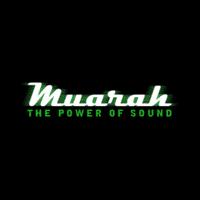Vol. 2 Review/Strauss: Also Sprach Zarathustra—William Steinberg & Boston Symphony Orchestra: The DG Recordings Original Source 3 LP Vinyl Box Set
I don’t like writing reviews with multiple subjects, music or gear. One at a time for me. Focus. Cable looms make things extra difficult for me, but for everything else, no matter the manufacturer's request, I break into individual reviews. Same for this important release from DG The Original Source; the long-awaited William Steinberg recorded canon with his Boston Symphony Orchestra and combined into a superbly executed three-LP boxed set. Steinberg’s was a short-lived music directorship (1969-72); it produced three very famous recordings on Deutsche Grammophon, now receiving the loving benediction of the Emil Berliner Studios. All analog remastering from the original four-track tapes, mixed down to two tracks and cut all analogue.
We have Also Sprach Zarathustra (reviewed here), The Planets (review forthcoming) and Steinberg’s Hindemith record.
Richard Strauss’ Also Sprach Zarathustra (Thus Spoke Zarathustra, a Tone Poem for Large Orchestra, Op. 30) was written in 1896 and inspired by the Friedrich Nietzsche novel.
The original recording is from 1971 in Symphony Hall, Boston, produced by Karl Faust and Tom Mowrey with DG’s stalwart recording engineer, Günter Hermanns.
The Original Sound reissue was mixed by Rainer Maillard and cut by Sidney C. Meyer at Emil Berliner Studios.
Zarathustra was composed when Strauss was in his early 30s—he premiered the work in Frankfurt. The piece was a success and only furthered Strauss' international fame as a composer and conductor. The work became an international sensation when director Stanley Kubrick used the opening “Sunrise” so brilliantly as the theme music to his 1968 science fiction epic 2001: A Space Odyssey.
Of course, the work lasts another thirty minutes past the amazing “Sunrise”, following carefully chapter and verse of Nietzsche's novel with a very complex musical score reflecting nature, mankind, chaos, life and joy.
The nine sections are:
"Sonnenaufgang" (Sunrise)
"Von den Hinterweltlern" (Of the Backworldsmen)
"Von der großen Sehnsucht" (Of the Great Longing)
"Von den Freuden und Leidenschaften" (Of Joys and Passions)
"Das Grablied" (The Song of the Grave)
"Von der Wissenschaft" (Of Science and Learning)
"Der Genesende" (The Convalescent)
"Das Tanzlied" (The Dance Song)
"Nachtwandlerlied" (Song of the Night Wanderer)
The thickly scored work with lots of sections doubling in very loud dynamics, receives a superb performance by the Boston players. And Steinberg moves the piece along—it can get dragged down under its bombast unless the conductor is on the ball.
No matter the difficult solos, the Boston players are at the top of their game, no more than their long-time, famous timpanist Vic (Everett) Firth. And it’s the great man that gives us a hint at the recording quality. The very famous timpani strokes (see photo below) after the trumpet introductory “world riddle theme” (C G C), are played louder (or recorded louder) than I’ve heard. It makes for thrilling listening but the kettle rings so much that some of the transients and decay blur the proceedings (notice the dynamics, only forte rising to fortissimo on the final triplet). What was it Strauss as conductor said? “Never look at the brass and percussion when conducting, it only encourages them!”.
That said, Strauss' thick scoring works in this recut. So the long cello and horn doublings at a very loud dynamic sound cohesive and blended. Other sections, too. When Strauss calls for a sfz, Steinberg ensures the orchestra gives the full effect and the recording captures that. And later when the famous concertmaster Joseph Silverstein is weaving his magic in "Das Tanzlied" (The Dance Song), the recording highlights his glorious tone and the beautiful way Steinberg and the orchestra accompany him.
But I don’t wish to damn the new record with faint praise. If you don’t have a Zarathustra, Steinberg’s is perfectly acceptable. In fact, at some points, he damn well surprises the listener by adding some touches even the great composer may not have thought of. During the continuation of the great fugue started in "Von der Wissenschaft" (all about science and learning) into "Der Genesende”, Steinberg begins the hurly-burly chase down each key in diminished inverted arpeggios (many hours in the practice room on this pattern!) at an abrupt hell of a pace (see photo below) and only on the final bars of the pattern does Strauss call for “immer schneller”, ever faster. Steinberg and his great orchestra can and do comply. It’s very thrilling stuff.
So, another very good reissue from Emil Berliner is worthy of your investment. It’s not quite as strong an effort as the Hindemith recording in the box set, but I very much enjoyed it.
Zarathustra can get very heavy and lost in its zeitgeist—in English orchestral player parlance, “up its fundament!” The lengthy ppp bitonality ending of “Nachtwandlerlied"—no perfect cadence ending for this piece—the soul’s longing and drifting, the chaos, etc, really can go on a bit. But Steinberg strikes a happy medium.
If I’m pulling a record for Zarathustra for interpretation and playing, it’s DG/Bohm/Berlin Phil and for an audiophile recording, it’s Mehta/LA on Decca or the famous Reiner (Classic Records reissue). But if those three are not to hand, this new remaster will do just fine.




























